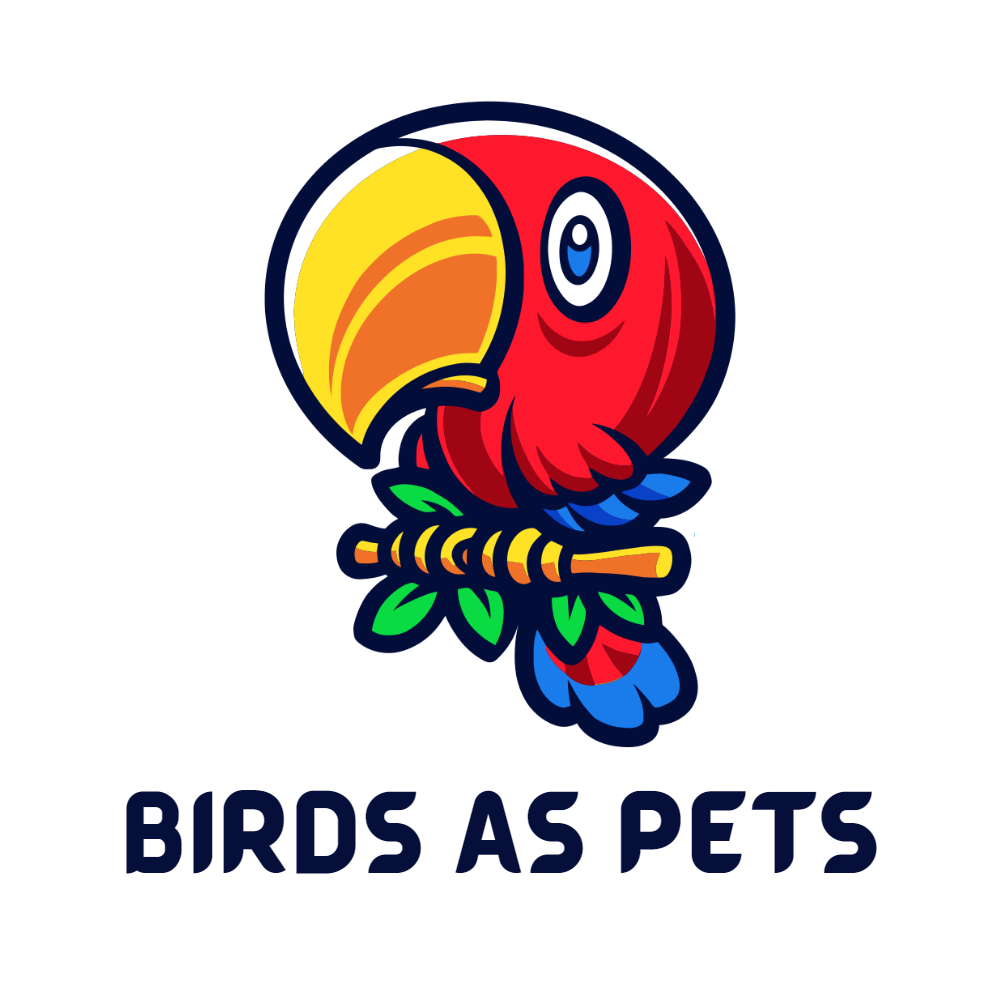Are you considering adopting a Sun Conure as a pet? These vibrant, social, and intelligent birds can make wonderful companions, but it’s essential to understand their unique care requirements and temperament. In this article, we’ll cover everything you need to know about keeping Sun Conures as pets, including their lifespan, pros and cons, and how to care for them.
Quick Reference Table: Sun Conure Facts
| Fact | Detail |
|---|---|
| Scientific Name | Aratinga solstitialis |
| Size | 11-12 inches (28-30 cm) from head to tail |
| Weight | 3.5-4.5 ounces (100-130 grams) |
| Lifespan | 15-25 years |
| Color | Vibrant yellow, orange, and green plumage |
| Temperament | Social, playful, and intelligent |
| Noise Level | Loud; known for their high-pitched calls |
Where Do Wild Sun Conures Live?
Wild Sun Conures are native to the northeastern region of South America, particularly in Brazil, French Guiana, Guyana, Suriname, and Venezuela. They inhabit tropical and subtropical forests, savannas, and palm groves, where they form large, noisy flocks.
Sun Conure Lifespan: How Long Do They Live as Pets?
With proper care, Sun Conures can live between 15 to 25 years as pets. To ensure a long, healthy life, provide them with a balanced diet, a clean and safe living environment, and regular veterinary check-ups. Time commitment is essential when caring for a Sun Conure, as they require daily social interaction and mental stimulation to thrive.
Are Sun Conures Good Pets?
Sun Conures can make fantastic pets for the right owner. They are known for their vibrant colors, playful nature, and strong bonds with their human caregivers. However, their loud calls and need for attention may not be suitable for everyone. Carefully consider whether a Sun Conure is the right fit for your lifestyle and living situation before committing to adopting one.
Are Sun Conures as Pets Good for Beginners?
While Sun Conures are friendly and intelligent, they may not be the best choice for first-time bird owners. Their loud vocalizations, need for social interaction, and sensitivity to environmental changes can make them challenging for those new to bird care. Beginner bird owners might want to consider other species, such as budgies or cockatiels, which are generally quieter and easier to care for.
Are Sun Conures Easy to Care For?
While Sun Conures are not considered difficult to care for, they do have specific needs that require time and attention. They need a large cage, daily opportunities for social interaction and mental stimulation, and a varied diet to keep them healthy and happy. Additionally, their loud calls can be challenging for some, making them less suitable for apartment living.
Sun Conure Pros and Cons
| Pros | Cons |
|---|---|
| Vibrant colors and attractive appearance | Loud vocalizations |
| Social and affectionate nature | Require daily interaction and attention |
| Intelligent and trainable | Not ideal for beginners |
| Playful and energetic | Need a large cage and plenty of toys |
Sun Conure Price and Costs
The initial cost of a Sun Conure can range from $200 to $800, depending on factors such as age, color, andbreeder reputation. In addition to the cost of the bird, expect to spend $300-$500 on a suitable cage and initial setup, including perches, toys, and feeding dishes. Ongoing expenses include a varied diet, veterinary care, and new toys to keep your Sun Conure mentally stimulated.
Where to Buy Sun Conures
When looking to purchase a Sun Conure, it’s essential to find a reputable breeder or rescue organization. This helps ensure that you’re adopting a healthy, well-socialized bird. You can also check with local pet stores, as they sometimes have Sun Conures available for adoption. Be sure to ask plenty of questions about the bird’s health, history, and care requirements before making a decision.
Caring for Sun Conures
Proper care for a Sun Conure involves providing a clean and safe environment, a balanced diet, and ample opportunities for social interaction and mental stimulation. Regular health check-ups with an avian veterinarian are also essential for maintaining your bird’s well-being.
Sun Conure Food
A balanced diet for Sun Conures should consist of a high-quality pellet mix, a variety of fresh fruits and vegetables, and some seeds and nuts. Avoid feeding them avocado, chocolate, caffeine, and alcohol, as these can be toxic to birds. Provide fresh water daily and ensure that their food dishes are clean and free from contamination.
Health and Common Issues
Some common health issues seen in Sun Conures include feather plucking (often due to stress or boredom), respiratory infections, and vitamin A deficiency. Regular veterinary check-ups can help catch and address any health concerns early on.
Signs of Healthy Sun Conures
| Healthy Sun Conure | Sick Sun Conure |
|---|---|
| Bright, clear eyes | Swollen, crusty, or watery eyes |
| Smooth, well-groomed feathers | Ruffled, dirty, or plucked feathers |
| Active and alert | Lethargic or unresponsive |
| Appetite for a balanced diet | Loss of appetite or sudden change in eating habits |
| Normal droppings | Diarrhea, discolored, or unusual droppings |
Sun Conure Pet Insurance
Investing in pet insurance for your Sun Conure can help cover the costs of veterinary care and treatment in case of illness or injury. Some companies offer specialized bird insurance policies, which may include coverage for routine check-ups, diagnostic tests, and emergency care. Research different providers and choose a policy that best fits your needs and budget.
Personality and Behavior
Sun Conures are known for their playful, affectionate, and curious personalities. They enjoy socializing with their human caregivers and can form strong bonds with them. These intelligent birds can also learn tricks and even mimic some sounds. However, they can be loud and demanding at times, which may not suit all households.
Are Sun Conures Social?
Yes, Sun Conures are highly social animals that thrive on interaction with their human companions and other birds. They require daily attention, mental stimulation, and opportunities for play and exercise. A lack of socialization can lead to boredom, stress, and behavioral problems such as feather plucking.
Speech and Noise of Sun Conures
While Sun Conures are not known for their talking abilities, they can learn to mimic some words and sounds with consistent training. However, their vocalizations tend to be loud and high-pitched, which may be bothersome to some people, especially in close living quarters.
Similar Species to Sun Conures
Other species of conures share similarities with Sun Conures, including Jenday Conures, Blue-Crowned Conures, and Green-Cheeked Conures. These birds have similar care requirements, social natures, and playful personalities, but may differ in appearance and noise levels.
Can Sun Conures Live With Other Pets and Birds?
With proper introductions and supervision, Sun Conures can coexist with other bird species and even some pets. However, it’s essential to monitor interactions closely and ensure each animal has its own space. Keep in mind that larger birds or predatory pets, such as cats and dogs, may pose risks to your Sun Conure’s safety.
Are Sun Conures Legal to Have as Pets?
In most jurisdictions, Sun Conures are legal to keep as pets. However, some localities may have restrictions or permit requirements for keeping exotic birds. It’s essential to research and comply with any local regulations before adopting a Sun Conure.
Additional Resources
- Guide to Companion Parrot Behavior by Mattie Sue Athan
- Parrot Forums
- Sun Conure Owners Facebook Group
- Association of Avian Veterinarians
FAQ for Sun Conures as Pets
Do Sun Conures talk?
While Sun Conures are not known for their talking abilities, they can learn to mimic some words and sounds with consistent training. However, their vocalizations tend to be loud and high-pitched.
Are Sun Conures suitable for families with young kids?
Sun Conures can be suitable for families with young children, provided that the children are taught to handle the bird gently and respectfully. Adult supervision is essential during interactions to ensure the safety and well-being of both the child and the bird.
Can Sun Conures be trained?
Yes, Sun Conures are intelligent and trainable. With patience, positive reinforcement, and consistency, they can learn tricks and even mimic some sounds. Training sessions should be short, fun, and engaging to keep your bird’s interest.
How do I know what gender Sun Conures are?
It can be challenging to determine the sex of a Sun Conure visually, as males and females have similar appearances. The most accurate method for sexing Sun Conures is through DNA testing, which involves analyzing blood or feather samples.
How much time should I spend with my Sun Conure each day?
Sun Conures need daily social interaction to thrive. Ideally, you should spend at least 1-2 hours per day interacting with your bird, including playtime, training, and cuddling. This will help keep your Sun Conure happy, healthy, and well-adjusted.

